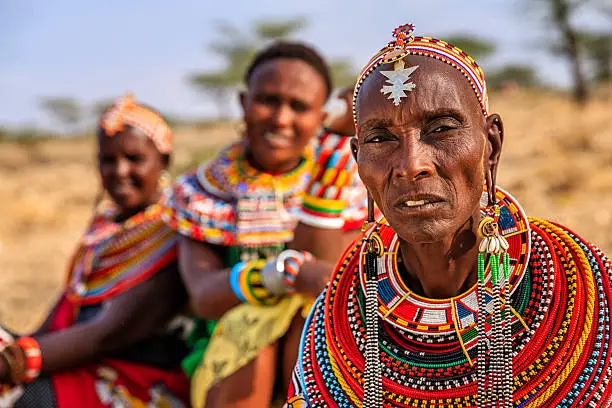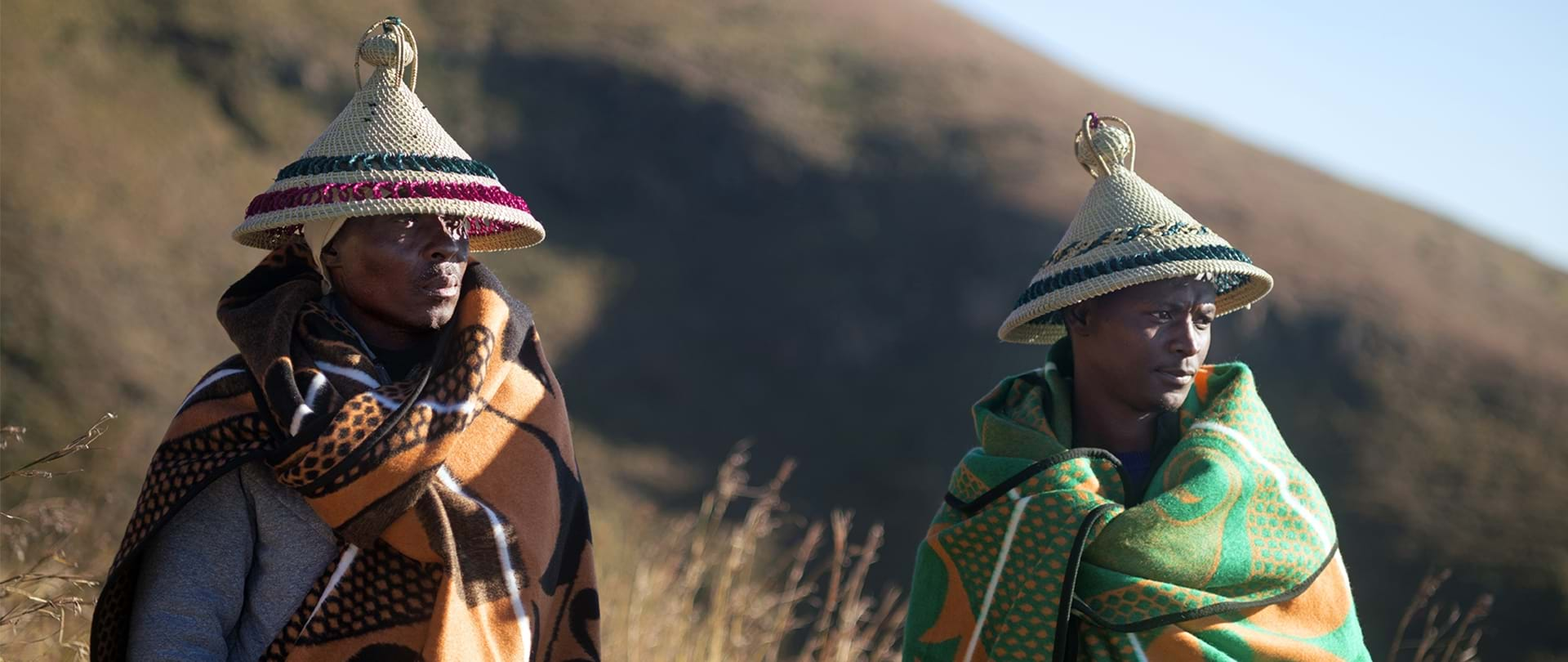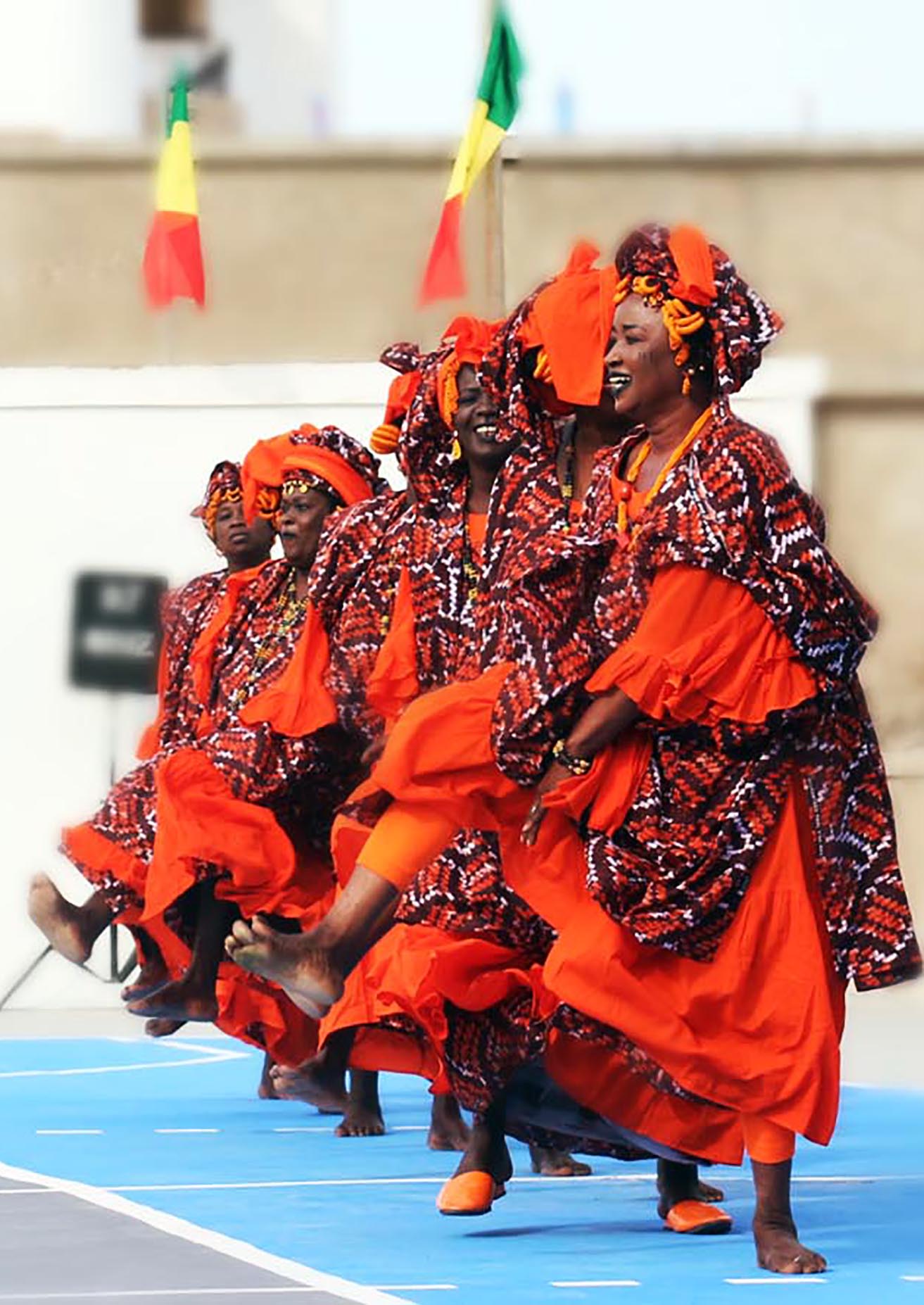Many African countries require a visa for entry, either before arrival or upon arrival. For American citizens, there are several African countries that do not require a visa for short-term visits. Ensure that your passport is valid for at least six months beyond your intended stay and check for any additional entry requirements such as proof of onward travel or health certificates. This is a two-part series and we will cover the countries in Africa that require a visa prior next. A visa serves several important purposes:
1. Regulation of Entry and Stay
Visas help countries control and regulate the entry, stay, and exit of foreign nationals within their borders. By requiring visas, countries can monitor and manage the flow of visitors, ensuring they meet specific entry criteria and stay only for authorized durations.
2. Security
Visas are a tool for maintaining national security. They allow countries to screen individuals before they enter, checking for potential risks such as criminal records, health issues, or intentions to overstay or engage in illegal activities. This helps prevent threats to public safety and national security.
3. Economic and Social Management
By controlling who can enter and under what conditions, visas help manage economic and social impacts, such as job markets, social services, and infrastructure. They ensure that visitors contribute positively to the economy and do not burden public services.
4. Bilateral Relations
Visa requirements often reflect the diplomatic relationships between countries. Reciprocal visa policies can enhance international cooperation, while restrictive policies might be used to address political or economic issues.
5. Legal and Compliance
Visas ensure that travelers comply with immigration laws and policies. They outline the conditions of entry and stay, such as the purpose of the visit (tourism, business, education, etc.), and help enforce immigration regulations.
Overall, visas are a critical tool for countries to manage international travel, ensuring that it aligns with their national interests and policies. Here is a list of the countries in Africa that do not require a visa along with the maximum duration of stay allowed.
1. Visa Requirements for Botswana — 90 days
US citizens do not require a visa to enter Botswana for stays up to 90 days within a one-year period for tourism purposes. However, a valid passport is essential, with at least six months of validity remaining and at least two blank visa pages. Upon arrival, travelers need to present their passport to immigration officials, who will stamp it with the entry permit.
Additionally, travelers should have proof of onward travel and sufficient funds for their stay. It’s always a good practice to verify current requirements before traveling, as regulations can change. For further details, you can visit sources like the U.S. Department of State’s travel page and Visa List.
2. Visa Requirements for Cape Verde — 30 days
U.S. citizens traveling to Cape Verde do not need a tourist visa for stays of up to 30 days. However, visitors must have a passport valid for at least six months from the date of entry into Cape Verde. Travelers are also required to pre-register online at least five days before arrival and may need to pay a small airport security fee upon entry.
For the most current and detailed information, it’s advisable to check official sources like the U.S. Department of State or the official Cape Verde embassy websites.
3. Visa Requirements for Eswatini (Swaziland) — 30 days
Eswatini (formerly Swaziland) has specific visa requirements for different nationalities. Here’s a summary of the visa requirements:
1. Visa-Free Entry: Citizens from certain countries, including the United States, the United Kingdom, Canada, and many European Union countries, can enter Eswatini without a visa for up to 30 days. This period can often be extended for an additional 30 days, totaling 60 days.
2. Visa on Arrival: For travelers from countries that do not require a visa, upon arrival, you will receive a visa stamp in your passport which allows for a stay of up to 30 days. It is important to have a passport that is valid for at least six months beyond your date of entry and to have proof of sufficient funds for your stay.
3. Pre-Arranged Visa: If your country is not on the visa-exempt list, you will need to apply for a visa in advance at an Eswatini embassy or consulate. The visa process typically requires filling out an application form, providing a valid passport, and other supporting documents like a travel itinerary and proof of funds.
Always check the latest visa regulations before traveling, as requirements can change. For the most accurate and updated information, it’s advisable to consult the nearest Eswatini embassy or official government resources.
4. Visa Requirement for Kenya — 90 days
Kenyan President, William Ruto officially announced on December 12, 2023 the removal of visa requirements for all global citizens effective January 1st, 2024. As an alternative to traditional visas, all guests, even those who were previously exempt from visa requirements, will need to acquire an Electronic Travel Authorization (ETA) at a reduced cost. To implement this policy, a digital platform is developed to identify all travelers in advance through an electronic system. Once identified, guests will obtain an ETA, streamlining the entry process.
The decision to eliminate visa requirements stemmed from a recent scientific discovery that Turkana County, located in the former Rift Valley Province of Kenya, is the cradle of mankind. President Ruto, a vocal advocate for a borderless Africa and visa-free travel, conveyed a simple message to the world: “To echo the call of the Turkana people to the world: ‘Tobong’u Lorre!’ a simple message to humanity: Welcome Home!”
5. Visa Requirements for Lesotho — 14 days
For U.S. Citizens: U.S. citizens do not need a visa to enter Lesotho for stays up to 14 days. Upon arrival, you simply present your passport, which must be valid for at least six months from the date of entry.
For Other Nationalities: Citizens of certain countries, such as the UK, Canada, and various EU countries, can stay in Lesotho for up to 14 days without a visa. For longer stays or different nationalities, a visa might be required.
Documents Needed:
1. Passport: Must be valid for at least six months beyond your stay.
2. Return or Onward Ticket: Proof of your intention to leave Lesotho after your visit.
3. Accommodation Proof: Details of your stay, such as hotel reservations or an invitation letter from a host.
4. Travel Insurance: Highly recommended, though not mandatory.
5. Financial Proof: Bank statements to demonstrate you can support yourself during your stay.
6. Vaccination Certificates: Depending on current health advisories, a Yellow Fever vaccination might be required.
Application Process for Longer Stays:
If you plan to stay longer than the visa-free period allows, you must apply for an e-Visa. The steps are:
1. Visit the official e-Visa portal.
2. Select the visa type (e.g., tourist, business).
3. Fill out the application form and attach required documents.
4. Pay the visa fee online.
5. Await approval via email
Visa Fees and Processing Time:
– Single entry visa: $150
– Multiple entry visa: $250
– Processing typically takes 2-3 business days
For the most accurate and updated information, always refer to official government websites or contact the nearest Lesotho consulate.
6. Visa Requirements for Mauritius — 90 days
Mauritius has relatively simple visa requirements for visitors. Citizens from many countries, including the United States, do not need a visa for short visits. U.S. passport holders can stay in Mauritius for up to 90 days without a visa for tourism purposes. Key entry requirements include having a passport valid for at least six months from the date of entry, a return or onward ticket, confirmed accommodation bookings, and sufficient funds for the duration of the stay (about $100 per day).
For those who do need to apply for a visa, the process involves submitting a completed application form, two passport-sized photos, and copies of relevant passport pages. Applications are typically processed within five working days.
For the most up-to-date and specific information regarding visa requirements and application procedures, it’s advisable to check the official website or consult with a local Mauritian consulate or embassy.
7. Visa Requirements for Morocco — 90 days
For travelers planning to visit Morocco, the visa requirements depend on their nationality. Here’s a summary of the visa requirements for different groups:
For US Citizens: US citizens do not need a visa for stays up to 90 days for tourism or business purposes. However, they must have a valid passport with at least six months of validity from the date of entry and a return or onward ticket.
For Canadian Citizens: Similar to US citizens, Canadians can enter Morocco without a visa for up to 90 days for tourism or business purposes. They must also have a passport valid for the duration of their stay.
For EU Citizens: Citizens from EU countries do not need a visa to enter Morocco for stays up to 90 days. The same requirements regarding passport validity and return or onward tickets apply.
Other Nationalities: Travelers from other countries should check the specific visa requirements as they can vary. Some nationalities may need to apply for a visa in advance or obtain an Electronic Authorization (AEVM) before arrival.
For all visitors, it’s important to ensure that your passport is valid for at least six months from the date of entry into Morocco and to have a return or onward ticket. If planning to stay beyond 90 days, you must apply for an extension at the local police station at least 15 days before your initial stay period expires.
For more detailed information and to confirm the latest requirements, always check with the nearest Moroccan embassy or consulate.
8. Visa Requirements for Namibia — 90 days
US citizens do not need a visa to enter Namibia for tourism or short visits of up to 90 days. However, a valid passport with at least six months remaining validity and at least three blank pages is required. Upon arrival, US travelers will have their passports stamped, allowing them to stay in the country for the permitted duration.
For those who need to stay longer or have different purposes such as work, a different type of visa would be required, which can be applied for at the Namibian embassy or consulate.
9. Visa Requirements for São Tomé and Príncipe — 15 days
To visit São Tomé and Príncipe, the visa requirements depend on your nationality. Here are the key points:
1. Visa-Free Entry: Citizens from several countries, including the United States, the United Kingdom, Canada, and most EU countries, can enter São Tomé and Príncipe for up to 15 days without a visa for tourism purposes.
2. Visa on Arrival: Nationals from China (including Hong Kong and Macau) can obtain a visa on arrival for up to 15 days.
3. E-Visa: If you are not eligible for visa-free entry or visa on arrival, you can apply for an e-Visa online. The e-Visa is typically processed within seven working days and is valid for 30 days. You will need to pay the visa fee upon arrival in São Tomé and Príncipe.
4. Longer Stays and Other Visa Types: For stays longer than 30 days or for purposes other than tourism (such as work, study, or business), you must apply for a specific visa type through a São Tomé and Príncipe embassy or consulate.
Required Documents for E-Visa
– A valid passport
– Travel itinerary
– Proof of accommodation
– Flight reservation details
– Bank statement showing proof of sufficient funds (€100 per day)
– Additional documents for minors, if applicable.
For more detailed information or to apply for an e-Visa, visit the official São Tomé and Príncipe e-Visa system website.
10. Visa Requirements for Senegal — 90 days
U.S. citizens do not need a visa to enter Senegal for short stays of up to 90 days for tourism or business purposes. However, your passport must be valid for at least six months from the date of entry. Upon arrival, you will receive a visa stamp allowing you to stay for up to 90 days. It’s important to have proof of sufficient funds for your stay and a return or onward ticket.
Additionally, travelers must carry a valid International Certificate of Vaccination, particularly for yellow fever, as it is required for entry. For other nationalities, the requirements can vary, so it’s best to check with the nearest Senegalese embassy or consulate for the most accurate information.
11. Visa Requirements for Seychelles — 90 days
US citizens do not need a visa to enter Seychelles for short stays. Instead, they are issued a visitor’s permit upon arrival, which is valid for up to 90 days. To obtain this permit, travelers must meet the following requirements:
1. Possess a valid passport with at least one blank page.
2. Have a return or onward travel ticket.
3. Provide proof of accommodation for the duration of the stay.
4. Demonstrate sufficient funds for the duration of the stay, typically at least $150 per day.
Additionally, travelers need to complete immigration procedures and are advised to have travel insurance and check for any travel advisories before their trip.
12. Visa Requirements for South Africa — 90 days
U.S. citizens do not need a visa for short-term visits to South Africa for tourism or business purposes. They are allowed to stay in the country for up to 90 days without a visa. However, travelers must meet the following requirements:
1. Valid Passport: The passport must be valid for at least six months beyond the date of entry and have at least two blank pages for entry stamps.
2. Return or Onward Ticket: Proof of a return or onward ticket is required.
3. Proof of Sufficient Funds: Travelers may need to demonstrate they have enough funds to cover their stay in South Africa.
4. Health and Safety: It is recommended to be aware of health regulations, including required vaccinations, especially if traveling from a yellow fever zone.
For more detailed information, travelers can refer to the South African Department of Home Affairs website or consult the U.S. State Department’s travel advisory page for South Africa.
13. Visa Requirements for Tunisia — 90 days
U.S. citizens do not need a visa for short stays in Tunisia. They are allowed to stay for up to 90 days visa-free. This exemption applies to tourism and short-term business trips. Upon arrival, U.S. travelers will need to present a valid passport that remains valid for at least six months beyond their intended stay. (https://visalist.io/tunisia/visa-requirements/united-states-of-america)
Entry Process: When arriving in Tunisia, U.S. citizens should proceed to the immigration counter where they will be required to show their passport. They will receive a visa stamp in their passport allowing them to stay for up to 90 days.
Long-Stay Visas: For those intending to stay longer than 90 days, such as for work or extended family visits, a long-stay visa and a temporary residence permit will be required. These permits are typically issued for 1-2 years and can be renewed. Permanent residence permits are available under certain conditions, such as residing continuously in Tunisia for five years or being married to a Tunisian citizen.
Safety and Travel Tips:
Travelers should exercise caution and stay informed about the current safety conditions. The U.S. Department of State provides detailed travel information and advisories that should be reviewed before traveling.
For the latest and most accurate information, it is advisable to check with the nearest Tunisian embassy or consulate before planning your trip.
















